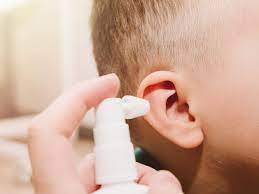Pediatric ear care plays a pivotal role in ensuring the overall health and well-being of children, as hearing plays a crucial role in their development, communication, and learning. However, caring for children’s ears comes with unique considerations and challenges, ranging from developmental milestones to common pediatric ear conditions.
In this comprehensive guide, we delve into the world of pediatric ear care, addressing the importance of developmental milestones, prevalent ear conditions, and preventive measures to safeguard children’s hearing health.
Developmental Milestones and Ear Health
Children’s ears undergo significant development from infancy through adolescence, with various milestones marking their auditory and vestibular maturation.
- Newborn Hearing Screening: Highlight the importance of newborn hearing screening programs in the early detection of hearing loss and intervention.
- Auditory Milestones: Discuss typical auditory milestones, such as responding to sound, babbling, and recognizing familiar voices, and their significance in monitoring hearing development.
- Vestibular Development: Explore the role of the vestibular system in balance and spatial orientation, emphasizing the importance of vestibular milestones in motor development.
Common Pediatric Ear Conditions
Understanding common pediatric ear conditions is essential for early detection, timely intervention, and effective management.
- Otitis Media: Examine the prevalence, causes, symptoms, and treatment of otitis media, including acute otitis media and otitis media with effusion (OME).
- Otitis Externa (Swimmer’s Ear): Discuss the risk factors, symptoms, and preventive measures for otitis externa, a common ear infection often associated with water exposure.
- Eustachian Tube Dysfunction: Explain the role of the eustachian tube in middle ear ventilation and the implications of eustachian tube dysfunction in children, including recurrent ear infections and hearing loss.
- Cerumen Impaction: Address the challenges of cerumen impaction in children and safe methods for earwax removal to prevent complications and discomfort.
Preventive Measures for Children’s Hearing Health

Promoting preventive measures is essential for maintaining children’s hearing health and preventing avoidable ear conditions.
- Immunizations: Highlight the importance of timely immunizations, such as pneumococcal conjugate vaccine (PCV) and influenza vaccine, in reducing the risk of otitis media and its complications.
- Hygiene Practices: Educate parents and caregivers on proper ear hygiene practices, including gentle cleaning of the outer ear and avoiding the use of cotton swabs or foreign objects to prevent injury and infection.
- Hearing Protection: Advocate for hearing protection measures in noisy environments, such as concerts, sporting events, and construction sites, to reduce the risk of noise-induced hearing loss.
- Healthy Lifestyle Habits: Encourage healthy lifestyle habits, such as breastfeeding, maintaining a smoke-free environment, and promoting nutritious diets rich in essential nutrients for optimal ear and overall health.
Early Intervention and Treatment
Timely intervention and appropriate treatment are essential for addressing pediatric ear conditions and minimizing their impact on children’s health and development.
- Pediatric Audiology Services: Highlight the role of pediatric audiologists in assessing hearing function, diagnosing hearing loss, and providing intervention services tailored to children’s unique needs.
- Medical Management: Discuss medical treatment options for pediatric ear conditions, including antibiotics, ear drops, tympanostomy tubes, and adenoidectomy, based on individualized treatment plans.
- Speech and Language Therapy: Emphasize the importance of early intervention through speech and language therapy for children with hearing loss or communication disorders to optimize language development and academic success.
Conclusion
Pediatric ear care is a multifaceted endeavour that requires attention to developmental milestones, awareness of common ear conditions, and implementation of preventive measures to safeguard children’s hearing health.
By fostering early detection, timely intervention, and supportive care, parents, caregivers, and healthcare professionals can nurture healthy ears in children, paving the way for optimal development, communication, and lifelong well-being.
Empowering families with knowledge and resources promotes a collaborative approach to pediatric ear care, ensuring that every child has the opportunity to thrive in a world of sound.
Related Tags
Taiwo Olawuyi
Taiwo Olawuyi is a highly dedicated and passionate professional blogger, renowned for her ability to create captivating, informative, and engaging content in the realm of health and wellness. She holds a Bachelor's degree in Political Science from Olabisi Onabanjo University and a Master's degree in Adult Education from the prestigious University of Ibadan. Her profound passion for health and wellness, coupled with her unwavering dedication to her audience, serves as a constant source of inspiration and enlightenment for readers worldwide.










